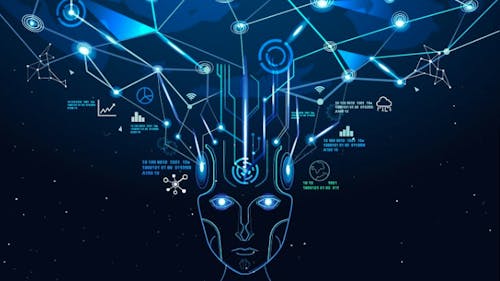Artificial intelligence, what to expect in its field's future

The world of Go, the traditional Chinese board game, has recently been shaken by the introduction of an elite player — AI, developed by Google. AlphaGo, the program name of the player AI, has only been defeated once since its introduction in 2016, by Go master Lee Se-dol, according to an article by Vice News.
Once defeated, Google trained a new version of the program by making it play against the original AI. When AlphaGo 2.0 beat its predecessor 100 times in a row, it was deemed sufficiently improved. Faced with a brand new insurmountable foe, Lee, considered one of the best human Go players in the world, retired.
This story, although it may seem innocent, is indicative of a diminishing sense of agency in the face of massive technological advances. Automations and AI specifically get the brunt of bad press as soon-to-be destroyers of industry and human innovation. In fact, Andrew Yang, an insurgent presidential candidate, garnered buzz by offering a unique, somewhat negative take on the implications of a more automated economy.
So, as these massive changes continually affect our culture, human agency and the notion of authenticity are being questioned more than ever. Here’s what you should and shouldn’t be concerned with regarding automations.
White-collar work is surprisingly susceptible
Many of the concerns about automations rightfully center around blue-collar work, perhaps most popularly in vehicle manufacturing. Automations surely pose a threat to sectors of the economy that are usually more physical in nature. That being said, highly specialized careers like a physicist or a chemical engineer are also under some threat, according to an article by Recode.
Artificial intelligence patents that have been filed indicate plenty of tasks that white-collar workers need to be successful, like data analysis and tracking markets. Work that requires subjectivity and interpretation has always been the domain of humans, since we were the only entities that could reason effectively enough to perform these roles, until now.
Today, AI and internet bots have radically shrunk human involvement in fields like telemarketing and customer service. Approximately a third of content produced by Bloomberg News utilizes some form of automated technology, according to The New York Times. Fields that previously seemed conditioned exclusively for humans are slowly seeing the increase of AI and automations. Yet, it isn’t all gloom and doom.
Technology could open up new opportunities
Not every advancement in AI or automations implies the replacement of a human, as new technology could do more to aid professionals instead of replacing them. In journalism, simple administrative or menial tasks could be handled by AI, clearing up time for more work-based tasks requiring critical thinking and a distinctly human viewpoint. This could aid more than just journalism, of course, as fields like design, educational planning and sports management are just a few fields that could similarly benefit.
By and large, humans still have the market cornered on innovation. Artificial intelligence learns by being fed examples of human innovation and spotting a pattern — it’s distinctly not in the business of doing something entirely new. As long as a field relies on progressing, in how it functions and why, it’ll be quite some time before automations or AI becomes an existential threat.
There’s something about humans …
Although many things have been automated without us putting up much of a fuss, I think that at a certain point there’s an innate human aspect to many goods and services that we enjoy today. Could a robot really approximate the value of a quality server? Kiosks may have replaced cashiers at McDonald’s, but there are some jobs that would be creepy if robotized.
Unsurprisingly I think the arts, by and large, will be safe from AI. The best that an AI can do is make a very good painting, song or novel, but it can’t create innovative work. In a runaround sort of way, competition from AI-generated art could push more creators to be more original in their works. Also, I believe that consumers of the arts will be less compelled by seemingly emotive works that come from no true experience.
This could all be naive of me, but I’m positive that there are people who love, and will prioritize, humanity’s presence in other fields of work. Automations and AI could also be incredibly helpful in an economic structure that isn’t overwhelmingly focused on the “human experience,” which has harmed plenty of other species on the planet. These people might be our saving grace when it comes to preventing the rise of robot overlords.



